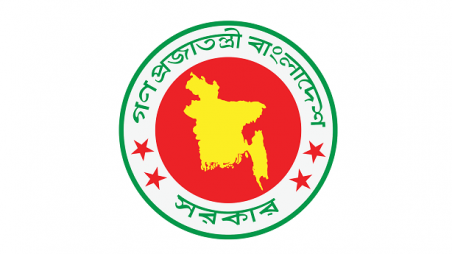UN human rights office in Bangladesh will focus on training, strengthening protections and accountability: Govt
The government says the mission’s role is to address and prevent grave human rights violations, not to advance any foreign agendas that fall outside the country’s established legal, social and cultural framework

The interim government of Bangladesh signed a three-year Memorandum of Understanding (MoU) with the Office of the United Nations High Commissioner for Human Rights (OHCHR) yesterday (18 July) to deploy a mission aimed at supporting the promotion and protection of human rights in the country.
According to a statement from the Chief Adviser's Press Wing issued today (19 July), the mission's primary purpose is to provide training and technical assistance to both government institutions and civil society organisations.
It seeks to help Bangladesh meet its national and international human rights obligations through capacity-building, legal support, and institutional strengthening, read the statement.
"This initiative reflects our continuing commitment to reform and accountability," it said, particularly in the context of serious human rights violations that occurred during July-August 2024.
Acknowledging that some local groups have raised concerns about the perceived ideological stance of international human rights bodies, the government emphasised that the OHCHR mission would respect Bangladesh's strong cultural and religious foundations.
The memorandum was signed yesterday by UN High Commissioner for Human Rights Volker Turk and Bangladesh Foreign Secretary Asad Alam Siam, said the UN rights office in a press statement.
The press wing statement clarified that the mission's role is to address and prevent grave human rights violations — such as those allegedly committed by the previous administration, not to advance any foreign agendas that fall outside the country's established legal, social and cultural framework.
"We expect that the mission will always demonstrate transparency and maintain close cooperation with local stakeholders. The UN has committed to operating in full respect of Bangladesh's cultural and religious reality," read the statement.
It said the government also retains the sovereign right to withdraw from the agreement if it finds that the mission no longer aligns with national interests.
The statement further noted that if such a mechanism "had existed during previous administration when extrajudicial killings and public massacres occurred with impunity, many of those crimes might have been properly investigated, documented, and prosecuted.
"Our commitment to human rights today must be rooted in justice, not ideology."
The government framed the current initiative as an opportunity to strengthen national institutions and enhance protections for all citizens, guided by Bangladesh's own laws, values, and democratic accountability.
"The signing of this memorandum sends an important message of the country's commitment to human rights as a cornerstone of the transition," said Volker Turk yesterday.
He said it will enable his office to better support implementation of the recommendations made in our fact-finding report, as well as to engage directly on the ground with the government, civil society and others with their expertise and assistance on the fundamental reforms Bangladesh is undertaking going forward.
Since August last year, after a mass uprising toppled the Awami League government, the UN human rights office's engagement with Bangladesh has significantly increased.
The office has been working with various stakeholders in advancing human rights reforms and conducting a comprehensive fact-finding inquiry into the deadly repression of mass protests.



 Keep updated, follow The Business Standard's Google news channel
Keep updated, follow The Business Standard's Google news channel

















